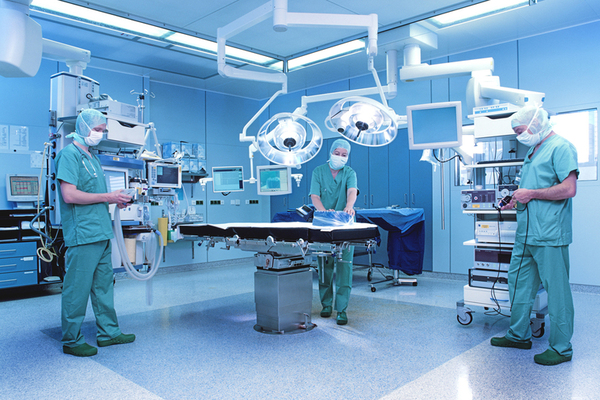
In the realm of modern medicine, surgical technology stands as a pinnacle of innovation and precision. It encompasses a vast array of tools, techniques, and methodologies aimed at ensuring optimal patient outcomes during surgical procedures. As pioneers in this field, we recognize the critical role that surgical technology plays in the success of surgical interventions.
Over the centuries, surgical instruments have undergone a remarkable transformation, evolving from rudimentary tools to sophisticated instruments designed for unparalleled precision. From the ancient civilizations of Egypt and Mesopotamia to the cutting-edge operating rooms of today, surgical technology has continuously advanced, driven by the pursuit of excellence and the quest for improved patient care.
Minimally invasive surgery represents a paradigm shift in surgical practice, allowing for smaller incisions, reduced trauma to surrounding tissues, and faster recovery times for patients. This revolutionary approach relies on specialized instruments such as laparoscopes and endoscopes, enabling surgeons to perform complex procedures with unparalleled precision.
Robotic surgery has emerged as a game-changer in the field of surgical technology, combining the expertise of skilled surgeons with the precision and dexterity of robotic systems. Utilizing advanced robotics platforms such as the da Vinci Surgical System, surgeons can perform intricate procedures with enhanced accuracy and control, leading to superior clinical outcomes.
Advanced imaging techniques play a crucial role in modern surgical practice, providing surgeons with real-time visual feedback and enhanced anatomical insights during procedures. From CT scans and MRI imaging to intraoperative ultrasound, these cutting-edge technologies enable surgeons to navigate complex anatomical structures with confidence and precision.
Maintaining a sterile surgical environment is paramount to preventing surgical site infections and ensuring patient safety. Sterilization techniques such as autoclaving and chemical disinfection, coupled with rigorous infection control protocols, are fundamental pillars of surgical technology aimed at minimizing the risk of postoperative complications.
Formal education and training programs in surgical technology provide aspiring surgical technologists with the knowledge, skills, and competencies required for success in the field. Accredited institutions offer comprehensive curricula encompassing anatomy, physiology, sterile technique, surgical procedures, and patient care, preparing students for rewarding careers in surgical settings.
Hands-on clinical experience is a cornerstone of surgical technology education, allowing students to apply theoretical knowledge in real-world surgical environments. Clinical internships provide invaluable opportunities for skill development, teamwork, and exposure to a wide range of surgical procedures under the guidance of seasoned surgical professionals.
In a rapidly evolving field such as surgical technology, lifelong learning is essential for staying abreast of the latest advancements and best practices. Continuing education programs, workshops, and conferences offer opportunities for surgical technologists to expand their knowledge, refine their skills, and enhance their professional development throughout their careers.
As we look ahead, the future of surgical technology holds immense promise, fueled by ongoing innovations in robotics, imaging, telemedicine, and artificial intelligence. By harnessing the power of technology and embracing a culture of continuous improvement, we can strive towards safer, more efficient, and more effective surgical care for patients worldwide.
In conclusion, surgical technology represents the culmination of centuries of innovation, ingenuity, and dedication to the advancement of medicine. From ancient civilizations to the digital age, the evolution of surgical instruments and techniques has revolutionized the practice of surgery, enabling surgeons to achieve remarkable feats and improve the lives of countless individuals. As pioneers in this field, we remain committed to pushing the boundaries of surgical technology and shaping the future of healthcare for generations to come.
Answer: A surgical technologist plays a crucial role in the operating room, assisting surgeons during surgical procedures by preparing the operating room, sterilizing instruments, and ensuring aseptic technique is maintained throughout the procedure.
Answer: The path to becoming a certified surgical technologist typically involves completing a formal education program, which can range from nine months to two years. After graduation, individuals must pass a national certification exam to become certified.
Answer: Common duties of a surgical technologist include preparing the operating room, sterilizing and organizing surgical instruments, assisting surgeons during procedures, and ensuring patient safety and comfort throughout the surgical process.
Answer: Employment prospects for surgical technologists are expected to remain favorable, with demand driven by an aging population in need of surgical interventions and advances in medical technology leading to more complex surgical procedures.
Answer: Yes, there are opportunities for advancement in the field of surgical technology. Surgical technologists can pursue additional certifications, specialize in specific surgical specialties, or advance into roles such as surgical first assistant or surgical technology instructor with further education and experience.
|
|